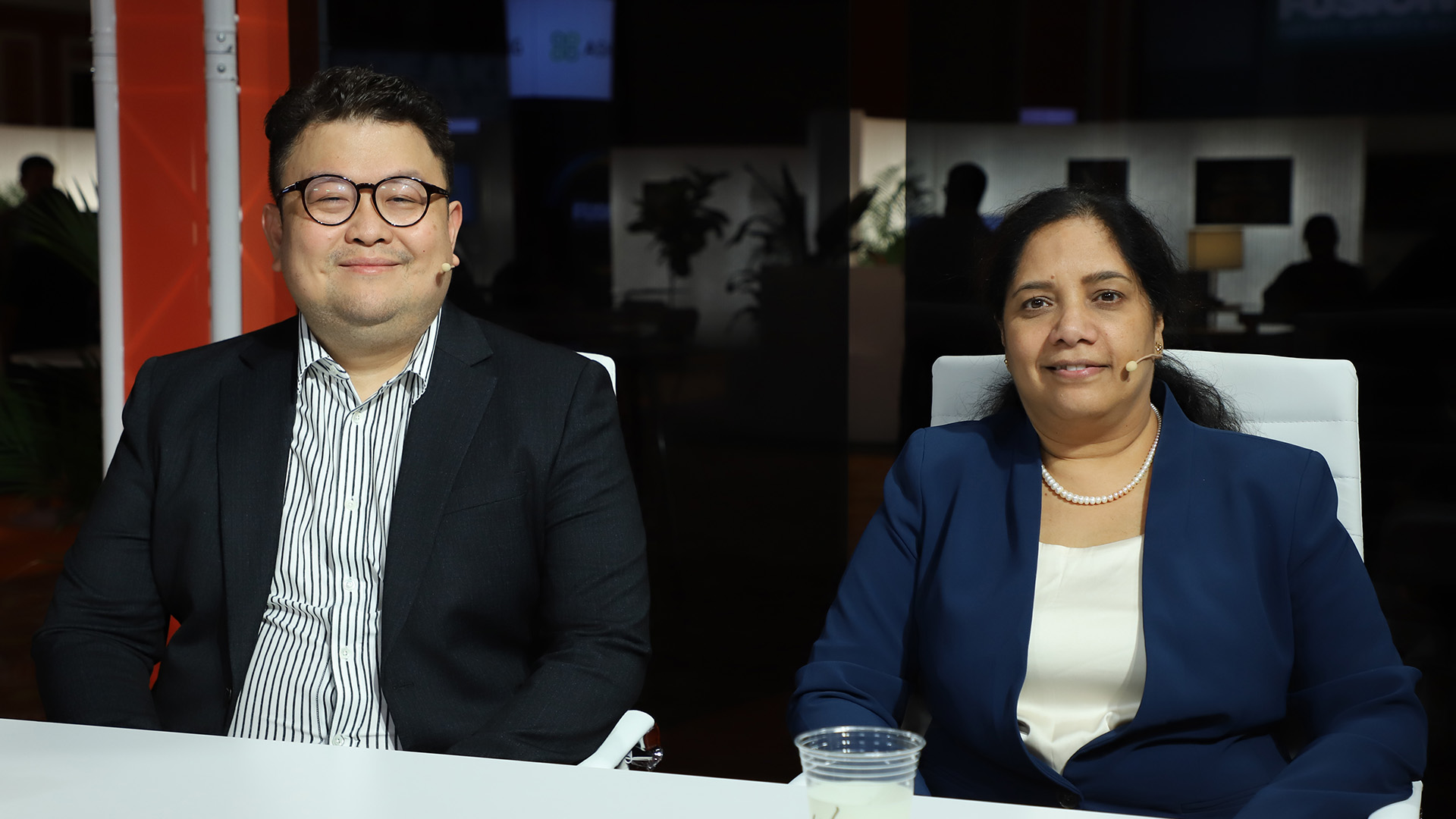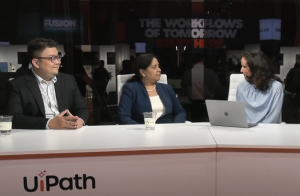 AI
AI
 AI
AI
 AI
AI
Agentic AI solutions are rewriting the rulebook for automation, moving past static scripts and predictable routines to systems that can think, adapt and decide. These aren’t passive tools waiting for orders — they’re autonomous collaborators capable of reasoning through complexity and achieving goals with minimal human input.
What makes this shift so compelling is the fusion of intelligence and initiative. Agentic AI doesn’t just execute commands; it evaluates context, adjusts in real time and drives outcomes with purpose. It’s a leap from reactive efficiency to proactive innovation — one that companies such as Capgemini Services SAS, Tetra Pak International S.A. and UiPath Inc. are already turning into practical, enterprise-ready transformations, according to Eric Lim (pictured, left), head of hyperautomation CoE at Tetra Pak.

Tetra Pak’s Eric Lim and Capgemini’s Lalitha Kompella talk with theCUBE about how agentic AI solutions are a strategic differentiator.
“In Tetra Pak, we’ve been having automation initiatives for many years,” Lim said. “We have been working together with UiPath as well as Capgemini for many years putting in place all the different automation initiatives. I think what is interesting now is that as we move from computer vision to AI and now agentic AI, we are evolving with the people and also with the processes. I think what is important is to understand that it’s an ecosystem where we have to work together, all together.”
Lim and Lalitha Kompella (right), vice president and global head of intelligent automation and business services at Capgemini, spoke with theCUBE’s Rebecca Knight and Dave Vellante at UiPath Fusion, during an exclusive broadcast on theCUBE, SiliconANGLE Media’s livestreaming studio. They discussed the importance of agentic AI solutions and how Tetra Pak, Capgemini and UiPath are spearheading innovation in this space. (* Disclosure below.)
Agentic AI solutions elevate human potential by serving as collaborative, goal-driven partners. Rather than executing pre-defined tasks, the agents make decisions, adapt to change and proactively drive outcomes across sectors such as supply chain, warehousing and manufacturing, according to Lim.
“In the current world, the human resource, the people are the most important parts,” he said. “The robots and agents are actually strategic enablers to help us deliver the outcomes. With the AI agents in some of the places like warehousing, service supply networks, we have actually reduced the number of hours required from days to actually hours. For example, one of our key business experts was working previously in a warehouse environment performing more of the tasks in the warehouse itself. Now he has moved to become an analyst.”
Agentic AI powers true end-to-end automation by replacing rigid workflows with adaptive, goal-driven orchestration. Unlike traditional automation that follows fixed rules, it acts as a proactive collaborator — sensing, deciding and acting across interconnected systems, Kompella pointed out.
“Everybody wants to talk about agentic AI,” she said. “The technology promise means, first of all, end-to-end process automation experience, end-to-end seamless coordination between organizational processes — people, clients and employees. It’s possible because of the ability of memory, perception, reasoning, learning, which gives the ability to act and be decisive, which was not there in traditional automation technologies before.”
The successful adoption of agentic AI requires more than powerful algorithms — it demands the right foundation. Organizations must focus on two essentials, namely selecting high-impact, decision-intensive processes and ensuring access to quality data because not every workflow is suited for agentic AI, according to Kompella.
“What’s working is when you pick the right use cases, the right processes, which will benefit from this technology,” she said. “When you put the right data foundation, which is the biggest issue in customer organizations, nobody prepared for a technology today [to] achieve this level of an ambition. Unless they prepare the data to be consumed by AI agents properly and their infrastructure is ready and the people are ready to accept it, it’s not going to fly.”
Here’s the complete video interview, part of SiliconANGLE’s and theCUBE’s coverage of UiPath Fusion:
(* Disclosure: Capgemini Services SAS sponsored this segment of theCUBE. Neither Capgemini nor other sponsors have editorial control over content on theCUBE or SiliconANGLE.)
Support our mission to keep content open and free by engaging with theCUBE community. Join theCUBE’s Alumni Trust Network, where technology leaders connect, share intelligence and create opportunities.
Founded by tech visionaries John Furrier and Dave Vellante, SiliconANGLE Media has built a dynamic ecosystem of industry-leading digital media brands that reach 15+ million elite tech professionals. Our new proprietary theCUBE AI Video Cloud is breaking ground in audience interaction, leveraging theCUBEai.com neural network to help technology companies make data-driven decisions and stay at the forefront of industry conversations.